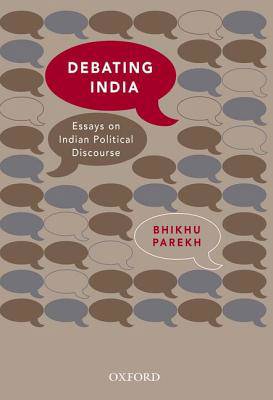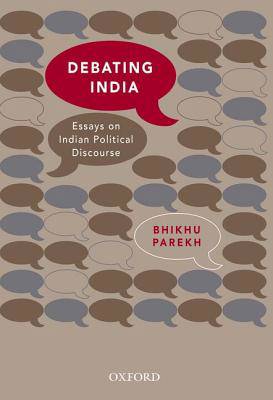
- Retrait gratuit dans votre magasin Club
- 7.000.000 titres dans notre catalogue
- Payer en toute sécurité
- Toujours un magasin près de chez vous
- Retrait gratuit dans votre magasin Club
- 7.000.0000 titres dans notre catalogue
- Payer en toute sécurité
- Toujours un magasin près de chez vous
42,95 €
+ 85 points
Description
India has had a long tradition of public debate going back to around 1000 BCE. But surprisingly, the knowledge of its existence has largely remained confined to a small field of critics or specialists. Debating India traces the origins and development of the Indian tradition of public debate and the various forms it took at different times in Indian history. It examines some of the major debates that occurred during the independence struggle and the ways in which they structured the conceptual and moral parameters of the Indian political imagination. The debates involved Gandhi, Tagore, Nehru, Ambedkar, and Hindu militants, and centred on the kind of country India was and should aspire to be. Gandhi's non-violent struggle claims to provide an answer to deep differences of views and conflicts of interest. Presenting riveting accounts, such as of Einstein's views on Gandhi's philosophy of Ahims? or of Gandhi-Tagore debates, and through an imaginary dialogue between Gandhi and Osama bin Laden, Parekh critically examines the strengths and weaknesses of Gandhian philosophy. In the process, the book points to a richer and politically more realistic approach to public debate than are currently on offer.
Spécifications
Parties prenantes
- Auteur(s) :
- Editeur:
Contenu
- Nombre de pages :
- 400
- Langue:
- Anglais
Caractéristiques
- EAN:
- 9780198060451
- Date de parution :
- 01-03-16
- Format:
- Livre relié
- Format numérique:
- Genaaid
- Dimensions :
- 150 mm x 224 mm
- Poids :
- 589 g

Les avis
Nous publions uniquement les avis qui respectent les conditions requises. Consultez nos conditions pour les avis.






